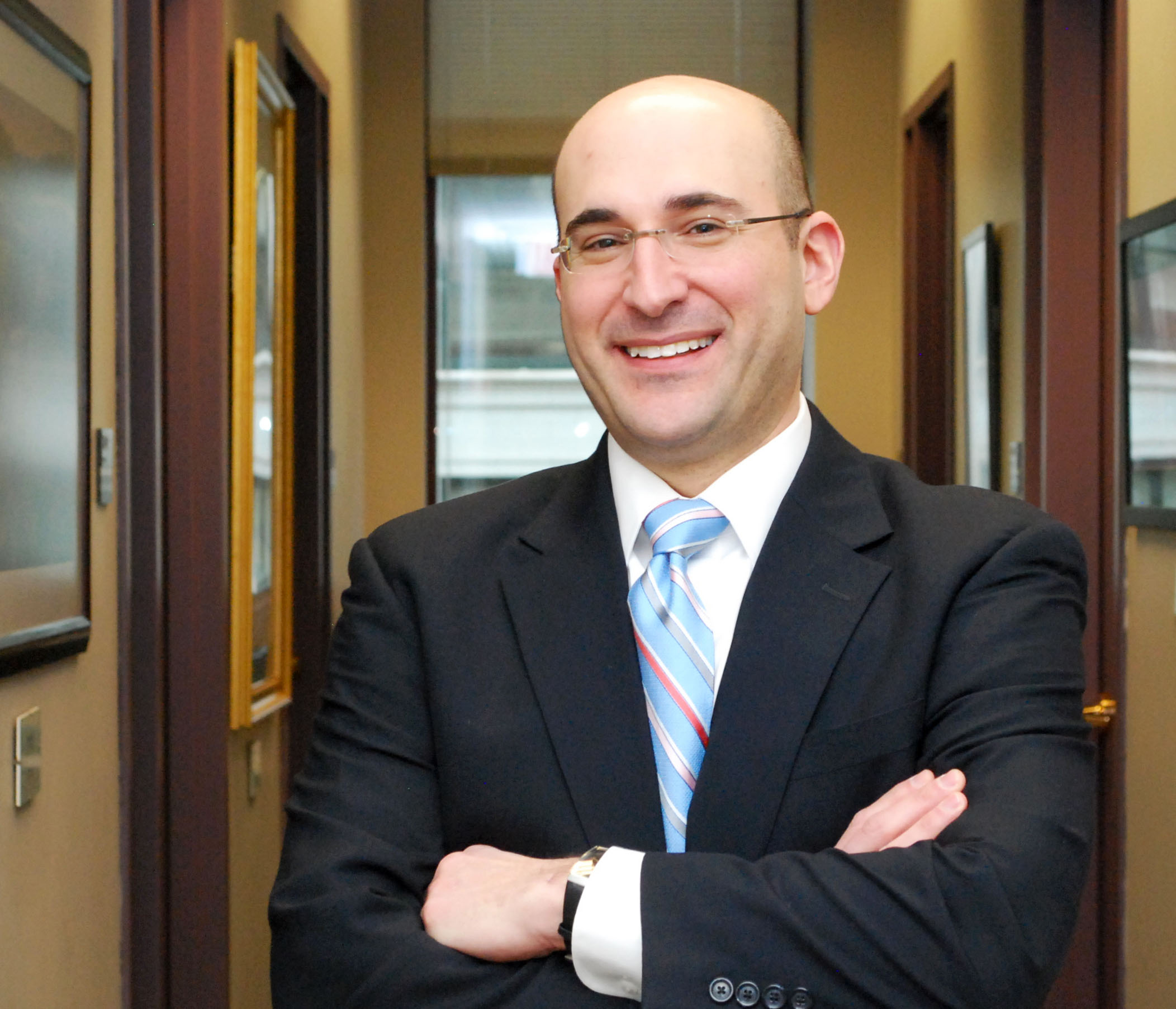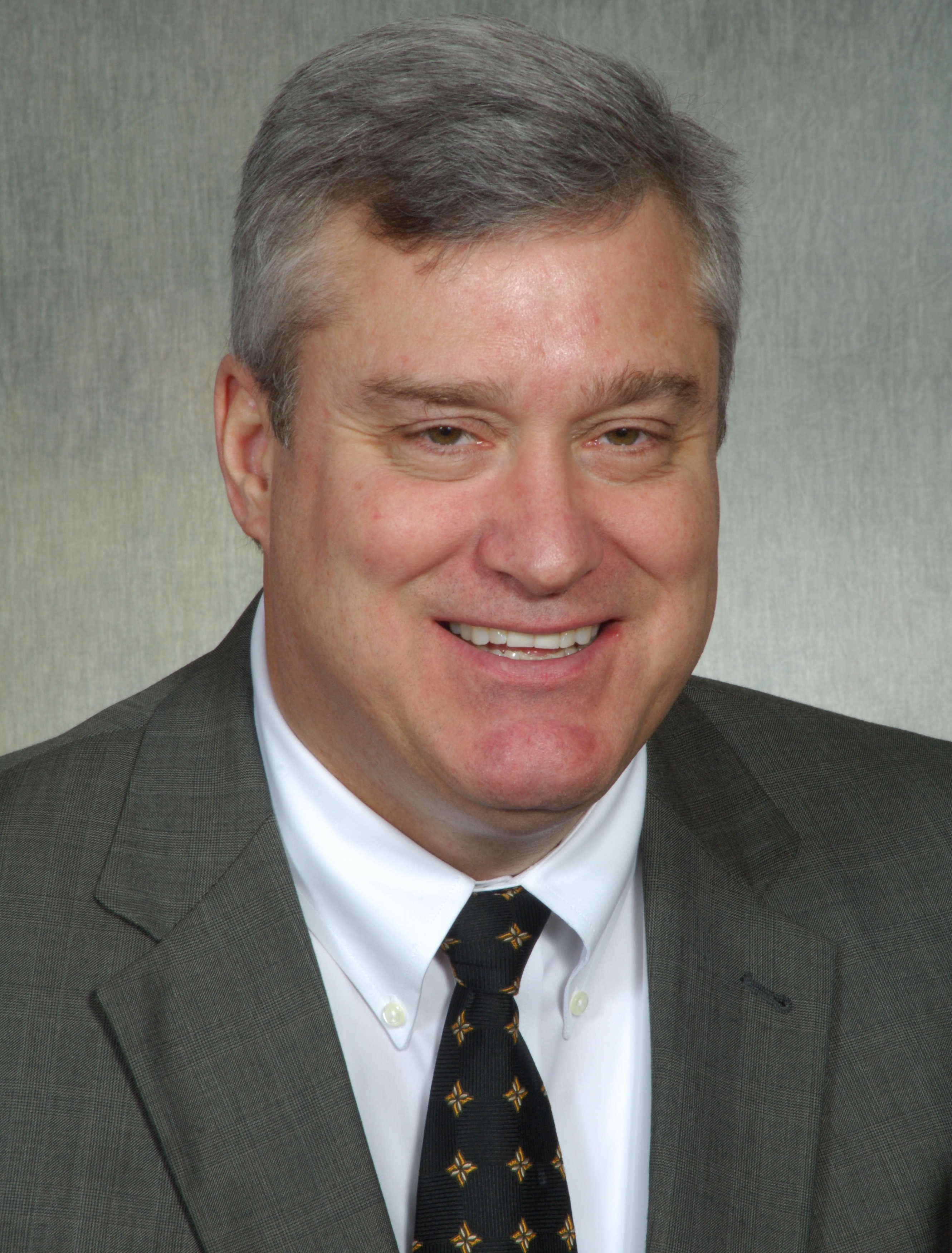 “We’re taking familiar functional topics that people often learn about early in their education and teaching students to conduct applied research to solve the very real problems that their organizations confront,” said Robert Rubin , associate professor of management. (Photo courtesy of the Driehaus College of Business)
“We’re taking familiar functional topics that people often learn about early in their education and teaching students to conduct applied research to solve the very real problems that their organizations confront,” said Robert Rubin , associate professor of management. (Photo courtesy of the Driehaus College of Business)CHICAGO — In today’s re-tooled business environment, executives at the top of their field are looking to step up their game even more by adding research and scientific techniques to their skills portfolio.
Advanced university degrees, beyond an MBA, like the new Executive Doctorate in Business Administration at DePaul University in Chicago, are being designed to equip senior executives with evidence-based management methods to gain new perspectives in decision-making and problem-solving.
“Executive leaders face complex, day-to-day business challenges. They are recognizing that rigorous scientific research methods and approaches can have impactful application in the business world, especially when analyzing difficult, multi-faceted situations,” said Robert Rubin, associate professor of management at the Kellstadt Graduate School of Business in DePaul’s Driehaus College of Business.
“The Executive Doctorate in Business Administration, or EDBA, is unlike traditional Ph.D. programs. Rather than preparing graduate students for careers in academia, it provides business leaders with training to master sophisticated research methods that can be applied in their industries,” Rubin said.
The program’s curriculum is designed to teach doctoral candidates how to use current research in organizational change and behavior to frame complex business issues, analyze responses and implement actions that transform their organizations.
“What differentiates this program from an executive MBA is that the EDBA is an applied research degree,” said Rubin. “We’re taking familiar functional topics that people often learn about early in their education and teaching students to conduct applied research to solve the very real problems that their organizations confront.”
A key component of the executive doctorate is the personal working relationships EDBA candidates will develop with DePaul business faculty members who have deep experience with research.
In each year of the program, doctoral candidates will participate in 10, three-day residencies led by Kellstadt Graduate School of Business faculty. During the second year, doctoral candidates will work as part of a small research team under a faculty member to frame and analyze a real-world business problem. During the third year, candidates will pursue dissertation research while being supervised by a faculty mentor.
 “This doctorate program fits really well with our unwavering mission to serve the working professional,” said Dan Heiser, associate dean for graduate programs. (Photo courtesy of the Driehaus College of Business)
“This doctorate program fits really well with our unwavering mission to serve the working professional,” said Dan Heiser, associate dean for graduate programs. (Photo courtesy of the Driehaus College of Business)DePaul’s EDBA offering was inspired by research into the market needs of executives and the recent move by the Association to Advance Collegiate Schools of Business to accredit applied doctoral business programs. This is the first EDBA offered in Chicago, according to Dan Heiser, associate dean for graduate programs at DePaul’s Kellstadt Graduate School of Business.
It also is one of the few programs of its type offered in the United States, Heiser noted. The new degree, which has strict admission standards, is geared toward working executives who don’t want their careers to be interrupted to learn at a higher level.
“This doctorate program fits really well with our unwavering mission to serve the working professional,” said Heiser.
The three-year program, which will launch in September, is designed for an individual who has earned a master’s degree in a business-related discipline and who has more than eight years of experience in management or consulting. The program is taught by professors with who are leaders in various disciplines including analysis of evidence-based management and statistics in business research.
Students move through the program in a close-knit cohort of 15, working on course projects and connecting with their peers to deepen their learning and engagement.
“It allows people to build a network and also have a group to rely on as they pursue work-life balance,” said Heiser. “Having a cohort of people who are supporting each other and developing long-lasting career relationships can be very important in a doctoral program.”
Doctoral candidates will complete coursework in an executive residency format in which they meet monthly for a three-day block on DePaul’s Loop Campus in downtown Chicago.
“Our alumni base at corporations and firms in the Chicagoland market is exceptional. We will be drawing heavily on that network to help identify student projects appropriate to the EDBA program,” Heiser said.
More information about the Executive Doctorate in Business Administration program and DePaul’s Kellstadt Graduate School of Business is online at go.depaul.edu/EDBA.
###
Sources:
Robert Rubin
Rrubin@depaul.edu
312-362-6145
Dan Heiser
Dheiser@depaul.edu
312-362-8423
Media Contact:
Jon Cecero
jcecero@depaul.edu
(312) 362-7640